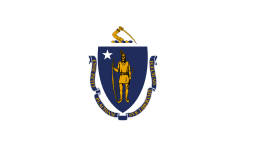Edward Boland
| Edward Boland | |
|---|---|
.jpg) 1983 photo of Boland. | |
| Member of the U.S. House of Representatives from Massachusetts's 2nd district | |
|
In office January 3, 1953 – January 3, 1989 | |
| Preceded by | Foster Furcolo |
| Succeeded by | Richard Neal |
| Member of the Massachusetts House of Representatives | |
|
In office 1939–1940 | |
| Personal details | |
| Born |
Edward Patrick Boland October 1, 1911 Springfield, Massachusetts |
| Died |
November 4, 2001 (aged 90) Springfield, Massachusetts |
| Political party | Democratic |
| Alma mater |
Bay Path Institute Boston College Law School |
Edward Patrick "Ed" Boland (October 1, 1911 – November 4, 2001) was a politician from the state of Massachusetts. A Democrat, he was a representative from Massachusetts's 2nd congressional district.
Boland's father was an Irish immigrant railroad worker.[1] Boland was born in Springfield, Massachusetts and graduated from Springfield Central High School in 1928. He attended Bay Path Institute and Boston College Law School. He was a member of the Massachusetts House of Representatives from 1939 to 1940 and was the Hampden County register of deeds from 1941 to 1952. He also served in the United States Army during World War II.[2]
Boland was elected to the United States House of Representatives as a Democrat in 1952.[2] Congressman Boland was in office during the closing of the Springfield Armory in 1968, and was harshly criticized for his inability to prevent it's closure. This failure resulted in a challenge to Boland in 1968 by Springfield Mayor Charles V. Ryan. Boland was re-elected handily with significant help from the family of U.S. Senator Ted Kennedy in what was to be the last challenge to Boland by a major contender. Boland's most famous work as a congressman was the 1982 Boland Amendment, which blocked further funding of the Contras in Nicaragua after the Central Intelligence Agency had supervised acts of sabotage without notifying Congress.[3] Boland lived in a Washington apartment with Tip O'Neill (whose wife remained in Massachusetts) until 1977 and he married at the age of 62, fathering four children. Boland retired from the House in 1989. Boland died in 2001 at the age of 90 from natural causes.[4]
References
- ↑ Oliver, Myrna (November 6, 2001). "Rep. Edward Boland, 90; Opposed Aid to Contras". Los Angeles Times. Retrieved December 16, 2012.
- 1 2 "BOLAND, Edward Patrick, (1911 - 2001)". Biographical Directory of the United States Congress. Retrieved December 16, 2012.
- ↑ "The Counterrevolutionaries (The Contras)". Understanding the Iran-Contra Affairs. Brown University. Retrieved December 16, 2012.
- ↑ Feeney, Mark (November 6, 2001). "Longtime congressman Edward Boland dies". Boston Globe. Archived from the original on November 21, 2001.
External links
| Wikimedia Commons has media related to Edward Boland. |
- United States Congress. "Edward Boland (id: B000600)". Biographical Directory of the United States Congress.
| United States House of Representatives | ||
|---|---|---|
| Preceded by Foster Furcolo |
Member of the U.S. House of Representatives from Massachusetts's 2nd congressional district January 3, 1953 – January 3, 1989 |
Succeeded by Richard Neal |

